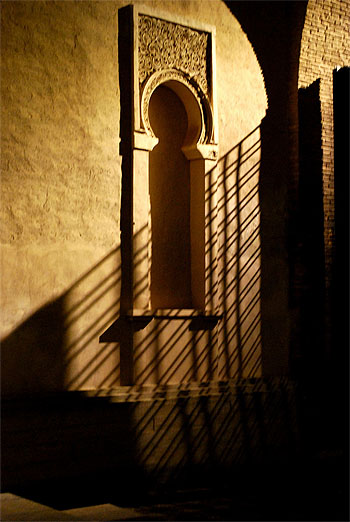
Que por mayo era por mayo, cuando hace la calor, cuando los trigos encañan y están los campos en flor; cuando canta la calandria y responde el ruiseñor; cuando los enamorados van a servir al amor; sino yo, triste, cuitado, que vivo en esta prisión, que ni sé cuándo es de día, ni cuándo las noches son, sino por una avecilla que me cantaba al albor. Matómela un ballestero; dele Dios mal galardón. | In May it was, in May, when the days are hot, when the wheat ripens and the fields are in flower; when the lark sings and the nightingale replies, when lovers serve the god of Love. Except for me, poor wretch, who live in this prison, unaware of daybreak and unaware of nightfall, save when a little bird sang to me at dawn – An archer shot it; may God grant him small thanks! |
This is one of the first romances, if not the very first one, that I had learned as a little boy – writes Wang Wei. It was sung by my mother and I remember her singing it exactly in those days of May described in the poem. With the difference that she added the refrain: “¡Ay, de la pena!” – “Oh, sorrow!” or “Alas!”:
Que por mayo era por mayo, cuando hace la calor, [Ay, de la pena, cuando hace la calor] cuando los trigos encañan y están los campos en flor; [Ay, de la pena, y están los campos en flor] cuando canta la calandria y responde el ruiseñor; [Ay, de la pena, y responde el ruiseñor] ... | In May it was, in May, when the days are hot – alas, the days are hot! – when the wheat ripens and the fields are in flower – alas, the fields are in flower! – when the lark sings and the nightingale replies – alas, and the nightingale replies! – … |
It is a short romance, so that the forced repetitions and the slow and reiterative melody endowed it with the feeling of a never ending desperate lament. In the course of time this romance has been more and more appreciated by me and by now it has become one of my favorites. I have recalled it as in these days we spoke about nightingales, and I was happy to see that others who had not known it, now read it with the same curiosity and appreciation. And while consulting the edition of Spanish romances by Paloma Díaz-Mas (Barcelona: Crítica, 1994, 284), I also found there a special appraisal of it:
This is indoubtedly one of the most beautiful and most perfect romances. The lament of an unknown prisoner in first person, the initial description of the blossoming springtime and the lyricism and beauty of the images together make it an exceptionally impressive literary work.
The poem exists in two versions. There is also a longer one which, in a very prosaic way, presents the prisoner almost as a “wild man,” with monstruous look and broken away from society. (This, in my opinion, relates the text to the allegorical world of late 15th-century sentimental novel, converting the prision into a Cárcel de amor.) The prisoner is planning in it how to escape, and finally he is set free in an inexplicable way by the king who suddenly has mercy on him. I never liked this version. On the contrary, the one published here is almost perfect in its concentration and allusiveness.
There was another problem, however, which has made me browsing through a multitude of electronic and printed pages: the music. A first, quick search led me to the versions of Amancio Prada:
and of Chicho Sánchez Ferlosio (what a peculiar figure he was and how much we have forgot him!) who also enlarged the Medieval romance with an allegorical “commentary” of his own:
Cárcel tengo por fuera, cárcel por dentro. Voy vagando y vagando, puerta no encuentro. Tener cárcel no me importara cárcel por fuera, si de la de aquí adentro salir pudiera. Veo el campo a lo lejos por la ventana. Tristeza, esperanza, noche y mañana. Allí crece la hierba de primavera. Esperanza y tristeza, luz y quimera. | Prison outside and prison inside. I’m roaming about and finding no door. I would not bother with the prison outside if I could set free from the prison inside. I see the field afar through the window. Sorrow and hope night and tomorrow. The flower of the spring is blossoming there. Hope and sorrow light and mirage. |
Both of them were enthusiastic about this type of poetry, mixing it with their respective manias and claims so characteristic of those seventies and early eighties when one had to regain possession of everything, including traditional poems. And of course their setting to music is very far from that subtlety of the romance how I keep it in my memory. Something similar can be told about the version of Paco Ibáñez, although it is marked by a much more popular tone, more fitting to the spirit of the text (you can listen to it here). And by searching a bit more, one also finds a more erudite and really good version sung by June Telletxero.
Romance del prisionero, interpretation of June Telletxero, accompanied on lute by Zif Bracha.
So far, so good. However, I was unable to find anywhere the version of my childhood – “alas!” Thus, in order to present it, I am constrained to hum it myself, offering a thousand apologies for the audacity, and pledging my word that as soon as someone offers us a more worthy version of it, we will immediately eliminate this one without a trace.
Romance del prisionero, interpretation of Wang Wei.
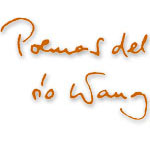




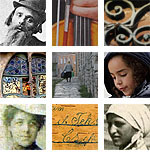
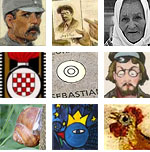






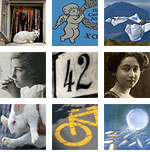
















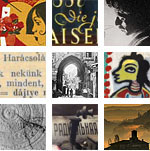
















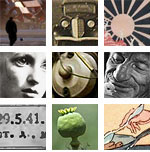
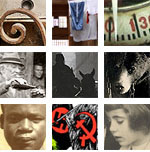








No hay comentarios:
Publicar un comentario